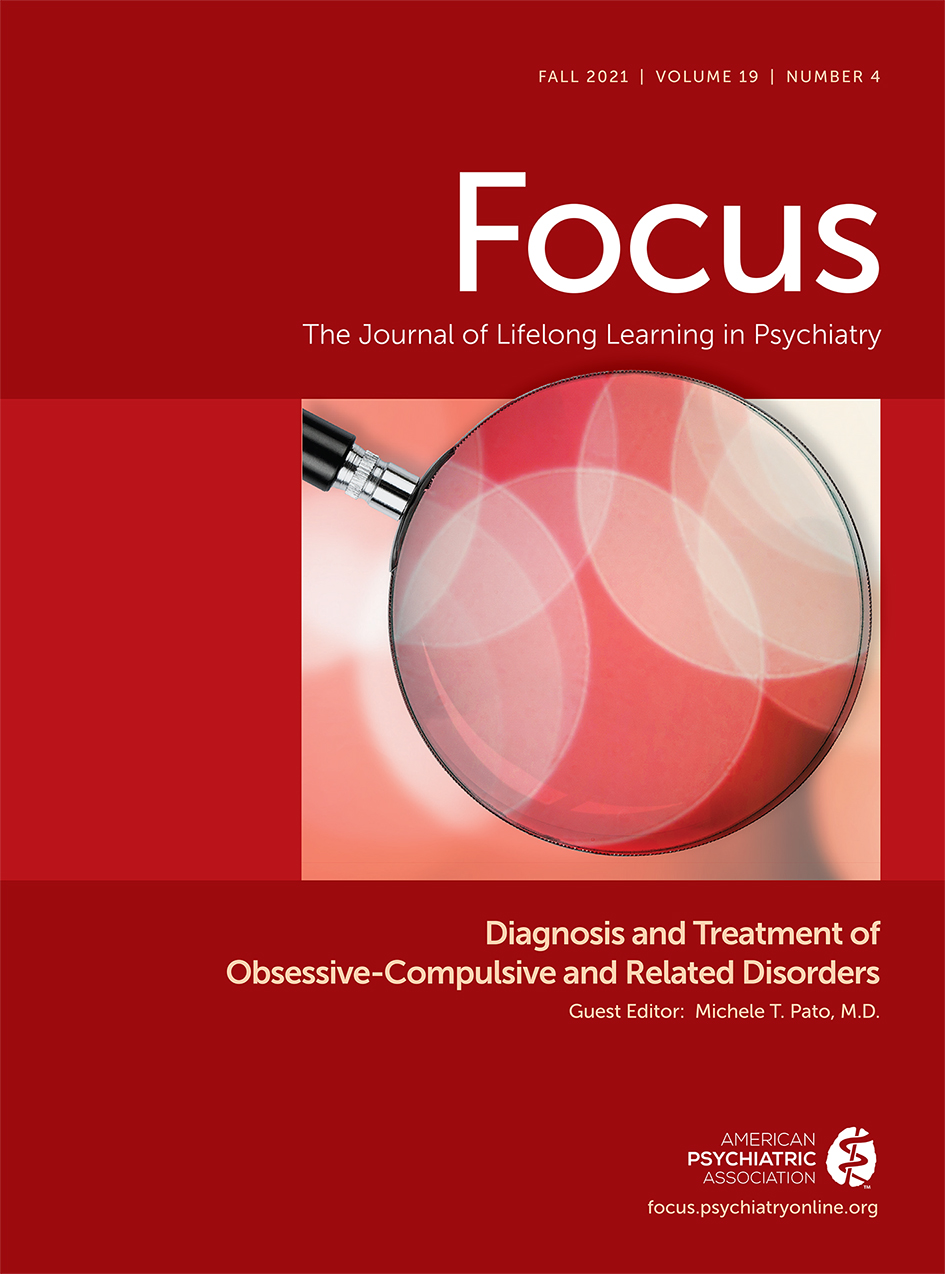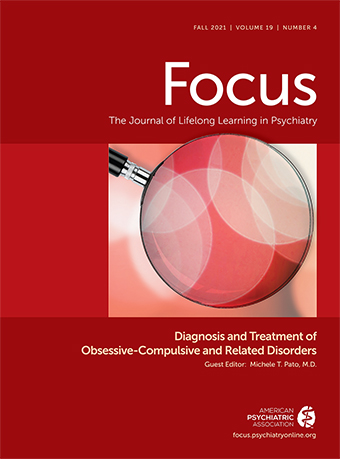OCD is characterized by persistent intrusive and upsetting thoughts, images, or urges (obsessions), as well as repetitive behaviors or mental acts (compulsions) that are performed to reduce discomfort (
4). In the United States, the lifetime prevalence rate of OCD is estimated at 2.3% (
5). Common obsessions include contamination fears, checking and doubts about responsibility for harm to self or others, hoarding, and intrusive “forbidden” thoughts (
6). Studies have suggested that, overall, an increase in obsession and compulsion severity has emerged since the beginning of the COVID-19 pandemic. The impact has been especially incapacitating for individuals with contamination and responsibility for harm symptoms (
2,
3,
7). In addition to an increase in symptoms, the COVID-19 pandemic restrictions may interfere with access to optimal OCD treatment (
3).
The psychotherapeutic treatment of choice for OCD, in both adults and children and backed by numerous clinical trials, is cognitive-behavioral therapy (CBT), particularly exposure with response prevention (ERP) (
8). In addition, selective serotonin reuptake inhibitors (SSRIs) remain the pharmacological treatment of choice and are associated with improved health-related quality of life (
9). There has been ongoing interest in the effectiveness of the specific treatment (i.e., ERP) versus the common factors of therapeutic alliance and treatment expectancy in the treatment of OCD. Vogel and collaborators (
10) found that the quality of the therapeutic alliance was the most important variable in predicting symptom improvement. On the other hand, Strauss and colleagues (
11) found that treatment specificity (ERP) predicted symptom reduction in OCD, with a relatively minor effect of therapeutic alliance. In fact, they found that it was positive symptom relief that was associated with stronger alliance, rather than vice versa. This was in the context of a highly structured research setting, in which patients committed to the assigned treatment.
Clinical Vignette
It was 10 minutes past the hour, and Mr. Sanders had not yet arrived for his first telepsychiatry appointment with Dr. Brown, his OCD treating psychiatrist. The phone rang, and Dr. Brown answered quickly.
“Hello, Doctor. This is Jerome Sanders.”
“Hello, Mr. Sanders,” Dr. Brown replied. “Is everything all right?”
“Well, yes. Well, no. Oh, I can’t figure out how to get on the video,” Mr. Sanders said irritably, his frustration obvious.
“I’ll help, Dad,” Dr. Brown heard in the background. It was Mr. Sanders’s 10-year-old daughter. Within another few minutes, Mr. Sanders appeared, mumbling with annoyance but smiling when he peered at the camera.
“Well,” Dr. Brown observed, “This technology is quite the challenge. I’m glad you stuck with it to come to our appointment.”
“Thanks to Jennifer, you mean,” Mr. Sanders quipped. “Kids these days can figure this stuff out in no time.”
“Indeed,” Dr. Brown smiled and nodded empathetically. “Well, shall we get started?” Dr. Brown began by explaining the evidence behind and the process of exposure and response prevention. “Mr. Brown, you reported during the initial evaluation that you are most bothered by needing to disinfect and wash your hands constantly, because you are fearful of becoming sick or having your family members become sick. You had to cut your work to half-time because the disinfecting was taking hours. And you are working at home. Is that still the case?”
“Yes,” replied Mr. Sanders. “Well, with COVID and all, how can I be sure we won’t get sick? And what if we do get COVID? What happens then?”
Dr. Brown validated Mr. Sanders’s distress. “It is a concerning time. How difficult it must be to manage your regular obsessions and fears—and then to add on worries about COVID.”
“You got that right!” Mr. Sanders replied emphatically. “How am I supposed to even get groceries? I haven’t been able to find N-95 masks, and when my wife goes out for groceries, I know she is going to get sick. And then spread it to the kids and me. I am spending hours trying to disinfect everything. My hands are raw with washing. And how in the world do you disinfect broccoli?”
“I can tell this has been really difficult. We all need to be careful about COVID exposure. Do you think you are overly concerned? Meaning, do you feel that your OCD is making you overreact?” Dr. Brown queried.
“That’s what they say,” Mr. Sanders replied. “You know, my primary care doctor, wife, sister. Still, how can I be sure?”
“It seems that your OCD symptoms are really severe. Considering government safety recommendations, we need to find a plan that fits your needs and optimizes safety.”
“And that might be?” Mr. Sanders inquired.
“Well,” mused Dr. Brown. “Let’s identify the primary symptom that you want help with first and make a plan around that.”
They discussed Mr. Sanders’s excessive handwashing. He agreed that his extreme handwashing had left his hands red, raw, and sore and perhaps more vulnerable to an infection. Mr. Sanders and Dr. Brown agreed on a plan to decrease the length of time that he washes his hands—no more than 30 seconds (just over the Centers for Disease Control and Prevention [CDC] guidelines of 20 seconds). They practiced relaxation techniques to use when he felt compelled to wash his hands unnecessarily. They agreed to start sertraline medication for treatment of OCD while they constructed an appropriate ERP plan to assist with compulsive behaviors. Mr. Sanders also reported that, with cutting his hours to part-time and working remotely, he has been spending hours watching the news, reading online media sources, and focusing on the spread and danger of COVID-19. They agreed it would be helpful to limit this media exposure.
At the end of the session, Mr. Sanders and Dr. Brown had co-constructed a written plan, including a daily schedule with media consumption confined to 30 minutes twice daily, homework, a timer to set for 30 seconds when he washes his hands, and informed consent to start sertraline.
“Are you comfortable with this plan?” Dr. Brown inquired as they prepared to end the session.
“Hey, I helped make the plan, so I better like it,” he replied, smiling a genuine smile for the first time that day.

